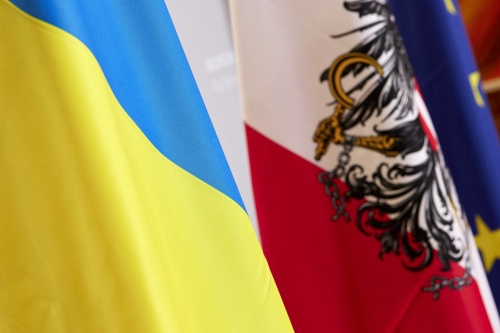Sponsored Content
Austrians Largely Rate Coexistence with Ukrainian Displaced Persons as Positive
Since the start of the Ukraine war in February, around 85,000 Ukrainian displaced persons have been registered in Austria. According to the Austrian Integration Fund, the integration barometer on the coexistence of people with and without a migration background explains that 64 percent see the coexistence of Austrians and Ukrainians as positive and, as a survey on the Ukraine war, provides information on attitudes and moods toward the integration of Ukrainian displaced persons in Austria.
 The survey shows rather positive attitudes of Austrians towards the integration of Ukrainian displaced persons in Austria. / Picture: © Thomas Topf / © Parlamentsdirektion
The survey shows rather positive attitudes of Austrians towards the integration of Ukrainian displaced persons in Austria. / Picture: © Thomas Topf / © Parlamentsdirektion
Although Austria traditionally has a rather reserved attitude toward refugees and foreigners, 64 percent rate the coexistence of Austrians and Ukrainians as positive. There is thus still a positive mood toward Ukrainian war refugees among the population, and 14 percent of respondents even rate coexistence as "very good." People under 30 years of age, people with children in the…
or Log In
Fast News Search





